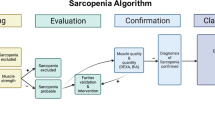Summary
Background
Heart failure is associated with low-grade inflammation. In the present study we sought to assess the prognostic impact of orosomucoid, a marker of inflammation, in outpatients with heart failure.
Methods
In outpatients with chronic heart failure (no change in clinical status and/or therapy >3 months prior to inclusion), baseline levels of orosomucoid were determined. Clinical follow-up was obtained and the rate of heart failure-related deaths and hospitalisations recorded.
Results
A total of 134 patients (median age 71, 33.3 % female, mean left ventricular ejection fraction [LVEF] 36 %) were included. During a median follow-up of 695 (456–811) days, 54 patients (40.1 %) experienced an event. On Cox multivariate analysis, orosomucoid levels above the median (>497 mg/l) emerged as an independent predictor of prognosis (hazard ratio = 2.86, 95 % confidence interval 1.48–5.52 after adjusting for age, gender, ischaemic vs. non-ischaemic aetiology, LVEF, NT-proBNP and NYHA class).
Conclusion
Orosomucoid levels are an independent predictor of heart failure-related mortality and hospitalisations in patients with chronic heart failure.

Similar content being viewed by others
References
Kuller LH, Shemanski L, Psaty BM, et al. Subclinical disease as an independent risk factor for cardiovascular disease. Circulation. 1995;92(4):720–6.
Gottediener JS, Arnold AM, Aurigemma GP, et al. Predictors of congestive heart disease in the elderly: the cardiovascular health study. J Am Coll Cardiol. 2000;35(6):1628–37.
Velavan P, Khan NK, Goode K, et al. Predictors of short-term mortality in heart failure – insights from the Euro heart failure survey. Int J Cardiol. 2010;138(1):63–9.
Pocock SJ, Wang D, Pfeffer MA, et al. Predictors of mortality and morbidity in patients with chronic heart failure. Eur Heart J. 2006;27(1):65–75.
O’Connor CM, Whellan DJ, Wojdyla D, et al. Factors related to morbidity and mortality in patients with chronic heart failure with systolic dysfuntion: The HF-ACTION predictive risk model. Circ Heart Fail. 2011;5(1):63–71.
Jug B, Salobir BG, Vene N, et al. Interleukin-6 is a stronger prognostic predictor than high-sensitive C‑reactive protein in patients with chronic heart failure. Heart Vessels. 2009;24(4):271–6.
Berry C, Clark AL. Catabolism in chronic heart failure. Eur Heart J. 2000;21(7):521–32.
Libert C, Brouckaert, Fiers W. Protection by alpha 1‑acid glycoprotein against tumor necrosis factor-induced lethality. J Exp Med. 1994;180(4):1571–5.
Heinrich PC, Castell JV, Andus T. Interleukin-6 and the acute phase response. Biochem J. 1990;265(3):621–36.
Fournier T, Medjoubi-N N, Porquet D. Alpha-1 glycoprotein. Bba–protein Struct Mol. 2000;1482(1-2):157–71.
Christiansen MS, Iversen K, Larsen CT, et al. Increased urinary orosomucoid excretion: a proposed marker for inflammation and endothelial dysfunction in patients with type 2 diabetes. Scand J Clin Lab Invest. 2009;69(2):272–81.
Sörensson J, Matejka GL, Ohlson M, Haraldson B. Human endothelium cells produce orosomucoid, an important component of the capillary barrier. Am J Physiol. 1999;M276(2 Pt 2):H530–H534.
Sörensson J, Ohlson M, Bjönson A, et al. Orosomucoid has c.AMP-dependent effect on human endothelial cells and inhibits the action of histamine. Am J Physiol. 2000;278(5):1725–31.
Chu J, Kishion S, Nomura A, et al. Serum alpha 1‑acid glycoprotein, sialic acid and protein binding of disopyramid in normal subjects and cardiac patients. Acta Pharmacol Sin. 1997;18(5):408–10.
Engstrom G, Hedblad B, Stanvenow L, et al. Fatality of future coronary events is related to inflammation-sensitive plasma proteins. Criculation. 2004;100(1):27–31.
Magid E, Guldager H, Hesse D, Skovdal Christiansen M. Monitoring urinary orosomucoid in acute inflammation: observation on urinary excretion of orosomucoid, albumin, alpha1-micro globulin and IgG. Clin Chem. 2005;51(11):2052–8.
Walsh D, Mahmoud F, Barna B. Assessment of nutritional status and prognosis of advanced cancer: interleukin-6, C‑reactive protein, and the prognostic and inflammatory nutritional index. Support Care Cancer. 2003;11(1):60–2.
Henry OF, Blacher J, Verdavaine J, et al. Alpha I‑acid glycoprotein is an independent predictor of in-hospital death in the elderly. Age Ageing. 2003;32(1):37–42.
Carriere I, Dupuy A‑M, Lacroux A, et al. Biomarkers of inflammation and malnutrition associated with early death in healthy elderly people. J Am Geriatr Soc. 2008;56(5):840–6.
Christiansen MS, Hommel E, Magid E, Feldt-Rasmussen B. Orosomucoid in urine is a powerful predictor of cardiovascular mortality in normoalbuminuric patients with type 2 diabetes at five years of follow-up. Diabetologia. 2005;48(2):386–93.
Engström G, Lind P, Hedblad B, et al. Effects of cholesterol and inflammation-sensitive plasma proteins on incidence of myocardial infarction and stroke in men. Circulation. 2002;105(22):2632–7.
Dickstein K, Cohen-Solal A, Filippatos G, et al. ESC guidelines for the diagnosis and treatment of acute and chronic heart failure 2008. Eur Heart J. 2008;29(19:2388–442.
Kalousova M, Sulkova S, Fialova L, et al. Glycixidation and inflammation in chronic haemodialysis patients. Nephrol Dial Transplant. 2003;18:2577–81.
Araujo JP, Laurenco P, Rocha-Goncales, et al. Nutritional markers and prognosis in cardiac cachexia. Int J Cardiol. 2011;146(3):359–63.
Conraads VM, Bosmans JM, Vrints CJ. Chronic heart failure: an example of a systemic chronic inflammatory disease resulting in cachexia. Int J Cardiol. 2002;85(1):33–49.
Loncar G, Fulster S, Healing S von, Popovic V. Metabolism and the heart: an overview of muscle, fat and bone metabolism in heart failure. Int J Cardiol. 2013;162(2):77–85.
Vasan RS, Sullivan LM, Roubenoff R, et al. Inflammatory markers and risk of heart failure in elderly subjects without prior myocardial infarction: The Framingham Heart Study. Circulation. 2003;107(11):1486–91.
Braunwald E. Biomarkers in heart failure. N Engl J Med. 2008;358(20):2148–59.
Shantsilla E, Wrigley BJ, Blann AD, Gill PS, Lip GY. A contemporary view on endothelial dysfunction in heart failure. Eur J Heart J. 2012;14(8):873–81.
Marchant D, Boyd J, Lin D, et al. Inflammation in Myocardial Diseases. Circ Res. 2012;110(1):126–44.
Author information
Authors and Affiliations
Corresponding author
Ethics declarations
Conflict of interest
P. Kaplan, B. Vrtovec and B. Jug declare that they have no competing interests.
Rights and permissions
About this article
Cite this article
Kaplan, P., Vrtovec, B. & Jug, B. Orosomucoid is an independent predictor of prognosis in chronic heart failure. Wien Klin Wochenschr 128, 870–874 (2016). https://doi.org/10.1007/s00508-016-1034-5
Received:
Accepted:
Published:
Issue Date:
DOI: https://doi.org/10.1007/s00508-016-1034-5




